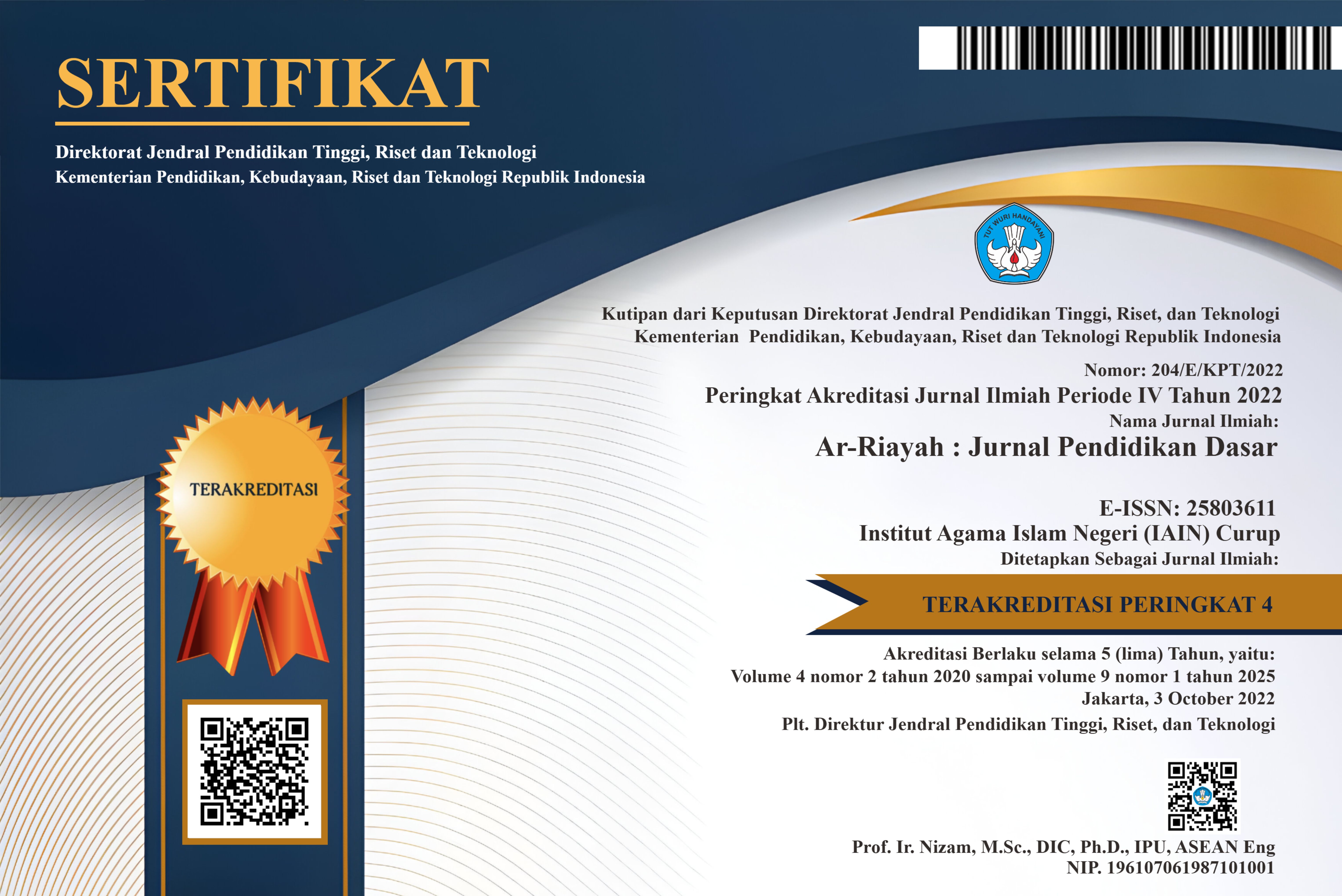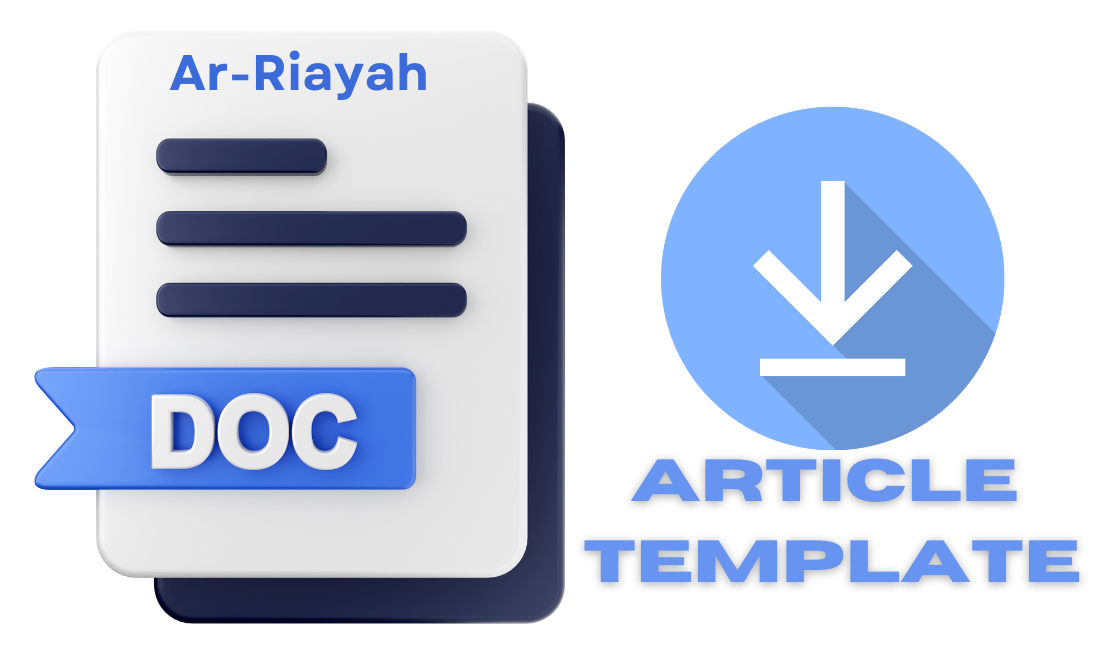Need Analysis for Reconstruction of The Merdeka Belajar Kampus Merdeka Transformative Curriculum to Enhance Students’s 4C Competencies
DOI:
https://doi.org/10.29240/jpd.v8i2.10834Keywords:
Needs Analysis, Merdeka Belajar Kampus Merdeka Curriculum, Transformative, 4C CompetenciesAbstract
The needs analysis for reconstructing the Merdeka Belajar Kampus Merdeka-transformative curriculum of the Primary School Teacher Education program at IAIN Curup was conducted to design a transformative MBKM curriculum aimed at strengthening students’ 21st-century competencies (4C). Specifically, this study aimed to (1) explore the needs analysis for the reconstruction of the PGMI-transformative curriculum; (2) describe the stages of designing and developing the MBKM-transformative curriculum; and (3) assess the feasibility of the MBKM-transformative curriculum reconstruction based on expert validation. This study employed a Research and Development (R&D) approach following Borg and Gall’s framework with modifications from the Dick and Carey model. Data were collected through observations, interviews, and Likert scale questionnaires (1–5). The data analysis utilized both qualitative methods, including data reduction, display, verification, and conclusion drawing, and quantitative methods, employing percentage and Total Critical Response (TCR) techniques. The findings revealed: (1) The needs analysis for reconstructing the MBKM-transformative 4C curriculum, based on interviews, observations, and questionnaires, indicated that the MBKM-transformative curriculum for PGMI is “highly needed”; (2) The developed MBKM-transformative 4C curriculum design includes a conceptual draft outlining various curriculum design aspects; and (3) Expert validation of the MBKM-transformative 4C curriculum, involving experts in curriculum, language, and media, yielded a total score of 88%, indicating that the curriculum is “fit for use.”
Downloads
References
Aan Widiyono et. al, 2021, Implementasi Merdeka Belajar Melalui Kampus Mengajar Printis di Sekolah Dasar: Jurnal Pendidikan Ke-SD an Vol. 16.
Akilah Mahmud. “Ciri Dan Keistimewaan Akhlak Dalam Islam.” Sulesana Jurnal Wawasan Keislaman 13, no. 1 (2019): 39.
Ali Mukti, 2018, Rethinking Metodologi Pemikiran Islam: Jakarta: Prenada.
Arikunto Suharsimi, 2006, Prosedur Penelitian: Suatu Pendekatan Praktek: Jakarta: Rineka Cipta.
Basuki Widodo, 2021, Impelementasi Education 4.0 Dan Merdeka Belajar Dalam Matematika di Perguruan Tinggi: Prisma Prosiding Seminar Nasional.
Dinn Wayudin, 2015, Manajemen Kurikulum: Bandung: Rosdakarya, 2015.
Freire, P., Illich, I, 2006, From, E, Menggugat Pendidikan, Fundamentalis, Konservatif, Liberal, Anarkis. Yogyakarta: Pustaka Pelajar.
Harto, K., & Tastin, 2019, Pengembangan Pembelajaran Pai Berwawasan Islam Wasatiyah : Upaya Membangun Sikap Moderasi Beragama Peserta Didik. At-Tailim, 18(1).
Harto Kasinyo, 2017, Model Pengembangan Metodologi Pembelajaran Pendidikan Agama Islam Saintifik-Doktriner Dalam Membentuk Karakter Keberagamaan Peserta Didik, Pidato pengukuhan guru besar; Senat Terbuka: Universitas Islam Negeri (UIN) Raden Fatah Palembang.
Lange Elizabeth, 2015, Transformative Learning and Concepts Of The Self: Insights From Immigrant And Intercultural Journeys, St. Francis Xavier University, Canada Published online: 08 Jul 2015. http://www.tandfonline.com/loi/tled20
Madjid Abdul, 2011, Metode Pengajaran Pendidikan Islam: Jakarta: Pustaka al-Husna
Mulyasa, 2013. Implementasi Kurikulum: Bandung: Rosda Karya
Muhammad Bahrul Ulum. Implementasi Merdeka Belajar Kampus Merdeka (MBKM) Di Fakultas Ilmu Komputer Universitas Esa Unggul. Jurnal Abdimas Volume 8 Nomor 2, Desember 2021, h. 145-151
Margono, 2010, Metodologi Penelitian Pendidikan: Jakarta: Rineka Cipta.
Mezirow, Jack, 1978, Education for Perspective Transformation: Women’s Re-entry Programs in Community Colleges. New York: Teacher’s College, Columbia University.
Nurhayani Siregar dkk, Konsep Kampus Merdeka Belajar di Era Revolusi Industri 4.0 Fitrah: Journal of Islamic Education.
O’Sullivan E, 2002, Bringing a Perspective of Transformative Learning to Globalized Consumption: International Journal of Consumer Studies.
Paredes Gudiño Sandra, 2018, Innovating Science Teaching with A Transformative Learning Model, Journal of Education for Teaching, 44:1, 107-111, DOI: 10.1080/02607476.2018.1422619.
Patricia, Cranton, 2002, Teaching for Transformation dalam J.M. Ross-Gordon (Ed.), New Direction for Adult and Continuing Education: No. 93; Contemporary Viewpoint on Teaching Adult Effectively: San Francisco, CA: Jossey-Bass.
Rosmilawati Ila, 2017, Konsep Pengalaman Belajar Dalam Perspektif Transformatif: Antara Mezirow Dan Freire: Prosiding Seminar Nasional Pendidikan Fkip Untirta Isbn 978-602-19411-2-6.
Rusman, 2011, Manajemen Kurikulum: Jakarta: Rajawali Press
Sudaryono et.al, 2020, Konsep Merdeka Belajar-Kampus Merdeka Dan Aplikasinya Dalam Pendidikan Bahasa Dan Sastra Indonesia, Jurnal Pendidikan Bahasa Dan Sastra Indonesia.
Sugiyono, Metode Penelitian Dan Pengembangan (Research and Development), (Bandung: Alfabeta, 2015), h. 297
Sugiyono, Metode Penelitian Dan Pengembangan (Research and Development), (Bandung: Alfabeta, 2015), h. 297
Winda Lestiani, dkk, Implementasi Kurikulum MBKM (Merdeka belajar Kampus Merdeka) di Program Studi Teknologi Pendidikan UPR dalam Perspektif Teori Belajar, Jurnal Teknologi Pendidikan (JtekPend), Vol 4 Np. 1, 2024 hal 1-10
Downloads
Published
How to Cite
Issue
Section
Citation Check
License
Copyright (c) 2024 Tika Meldina

This work is licensed under a Creative Commons Attribution-NonCommercial-ShareAlike 4.0 International License.
Authors who publish with Ar-Riayah: Jurnal Pendidikan Dasar agree to the following terms:
Authors retain copyright and grant the journal right of first publication with the work simultaneously licensed under a Creative Commons Attribution-NonCommercial-ShareAlike 4.0 International License (CC BY-NC-SA 4.0) that allows others to share the work with an acknowledgment of the work's authorship and initial publication in this journal.
Authors are able to enter into separate, additional contractual arrangements for the non-exclusive distribution of the journal's published version of the work (e.g., post it to an institutional repository or publish it in a book), with an acknowledgment of its initial publication in this journal.
- Authors are permitted and encouraged to post their work online (e.g., in institutional repositories or on their website) prior to and during the submission process, as it can lead to productive exchanges, as well as earlier and greater citation of published work (See The Effect of Open Access).










